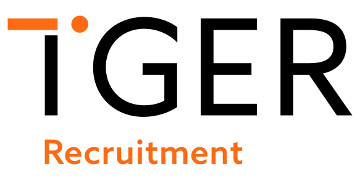The survey of 234 UK employers found that 50% of employers were concerned about the impact of cost increases on their benefits strategy. The research was jointly published by insurance firm Howden Employee Benefits and Wellbeing, and the Reward and Employee Benefits Association (REBA).
Nearly three quarters (72%) of employers cited competing HR or business priorities as a barrier to making benefits changes. A smaller proportion (68%) indicated a lack of resources or a capacity to deliver as being a barrier to change.
Kayla Velnoskey, senior research associate at management consultancy Gartner HR, told HR magazine that HR should take an innovative approach to benefits in order to retain talent.
She said: “High inflation is making it harder and harder for HR to secure budget, however the competition for candidates remains intense, therefore there is a need for companies to innovate in their approach to attracting and retaining their top talent, particularly for those unable to compete solely on compensation.”
Read more: Employees "don't seem interested" in benefits on offer
Ruth Cornish, founder of HR consultancy Amelore, explained that when seeking budget approval HR should demonstrate that enhanced benefits will contribute to organisational goals.
For over a quarter (27%) of employers, employees benefits provided effective support for HR transformation in 2023, the joint survey results show; nearly half (47%) of respondents anticipated that employee benefits would make a difference over the next two years.
When asked what areas benefits had positively impacted in 2023, 58% of respondents reported employee wellbeing, employee engagement (48%), workforce cost pressures (47%), and retaining (46%) and attracting (49%) employees.
Speaking to HR magazine, Cornish said: “Any decisions about reviewing, enhancing or even reducing benefits should be made as part of the overall business cycle and in conjunction with all strategic financial decisions.
“HR will present a business case most effectively if it is fully aligned with organisational goals and strategy.
“Having a good understanding of competing priorities will help identify clear commercial benefits particularly if directly linked to a detailed workforce plan.”
Read more: 54% of employees were not consulted about benefits, survey finds
Cornish noted that statistics on employee benefits could help secure budget approvals.
She commented: “Hard facts, data and evidence speak loudly. HR needs to be able to clearly link any investment with employee engagement and increased productivity and profit.
“Capturing and measuring this using engagement surveys, systems, ad hoc feedback, performance management tools and exit interviews, in addition to all relevant workforce metrics should present a compelling picture.”
Velnoskey suggested that HR should also focus on how benefits contribute to employee experience as a whole.
She added: “HR can showcase the effectiveness of employee-centric benefits by communicating how crafting work procedures and cultures that address both the physical and psychological requirements of staff members improve employees’ health and wellbeing.
“By instilling such benefits, organisations can expect to see elevated levels of engagement, motivation, and overall wellbeing among employees, resulting in enhanced productivity and improved business results.”
REBA surveyed 230 employers representing an estimated total of approximately 1.5 million employees between January and February 2024.










